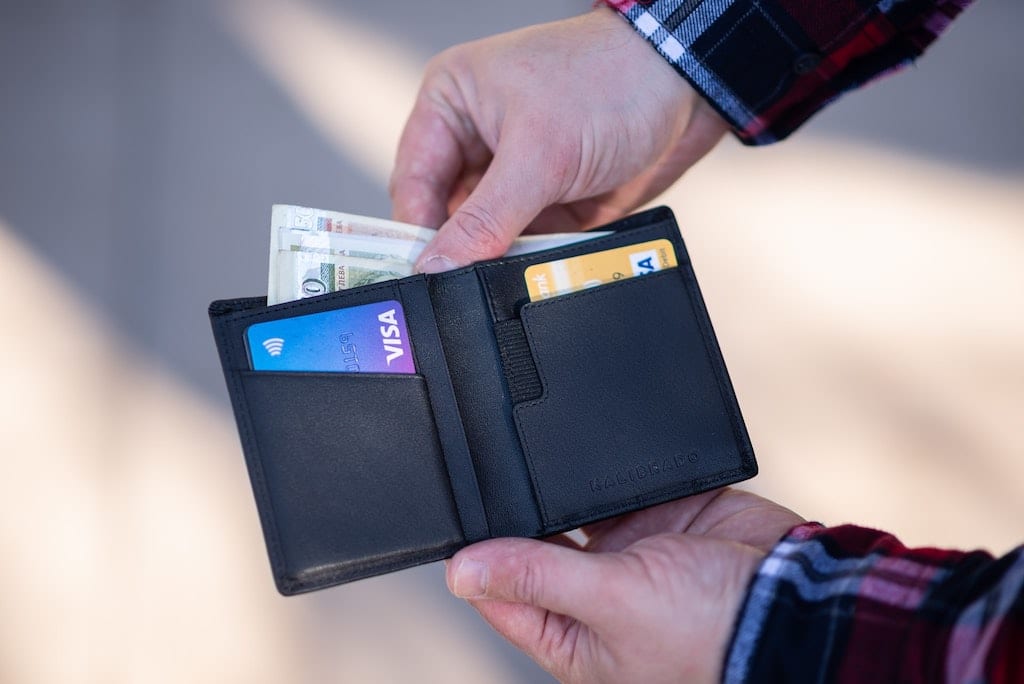Dealing with debt collectors is tricky. With this guide, you will be able to spot a legitimate collector from a scammer.
The world of debt collections is a convoluted one. There are few key ways to protect yourself from fake debt collectors and to be able to know when a collector is legitimate.

Red flags to watch out for
- They are withholding information
If the debt collector is purposely withholding information about the collection, they are not a legitimate debt collection agency. A collector must tell you the following information: the original creditor and the amount owed. They must tell you this information upon first contact, or else you must receive a written notice from them within the first five days of that first contact.
- Mentions of money transfers and prepaid cards
These payment methods are often asked for by scammers due to their inability to be traced. They make it difficult to get your money back after you pay them.
- Threatens jail time
A debt collector cannot threaten jail time or threaten to contact law enforcement if you refuse to pay the collection.
- Threatens to tell your loved ones or employer
In most situations, a debt collector cannot tell other people about the collection without your permission. However, they can ask other people how you are best reached.
- You do not recognize the debt
Always ask questions about the debt you supposedly owe. If you do not recognize the debt or believe you do not owe the debt or that it is not your debt, tell the caller that you are planning to dispute the debt.
- Asks for sensitive information
Many scammers will ask for personal information such as bank account information or your Social Security number. Never provide this information, it can leave you vulnerable to identity theft or further scams.
- Calls at odd times
By the Debt Collection Practices Act, a debt collector cannot contact you at unusual times or places that they know is inconvenient. This basically means that they cannot call you outside of normal business hours; if they are contacting you before 8 a.m. or after 9 p.m. they are probably a scammer. In addition, they cannot harass you, threaten you or spam you with calls to annoy you.
What do I do if I come across a scam?
When handling any debt collector, proceed with caution. For more information, check out our guide on dealing with debt collections. However, if you think you may be dealing with a collections scam, take these steps to protect yourself and to report the scammer.
- Gather information
The first step is to start getting information about both the debt and the debt collector. This includes asking for a validation letter without any hesitation. If they hesitate, you may be dealing with a scam; no legitimate debt collector will question you when you ask.
In addition, ask the caller for their name, their employer, the employer’s number and address and any other important business information. If they refuse to give out this information, that is a major red flag.
- Protect your personal information
A legitimate debt collector will not ask you for sensitive, personal financial information. If a collector is aggressive and asks for personal details, do not give them out. This includes things like you social security number, bank account information, debit and credit card numbers and more. This can put you at risk for identity theft or allow the scammer to directly pull money out of your bank account.
- Contact your original creditor
If you believe you have been contacted by a scammer, contact the original creditor to confirm the collection. They will let you know whether they sold the debt or not and can give you the information for the correct collections agency that now owns it.
- File a complaint
You can file a complaint to the Consumer Financial Protection Bureau or to your state’s attorney general if you think you have come across a debt collection scam. Before filing a complaint, gather as much information as possible about the potential scam.
- Ignore the calls
In the event of repeated calls to your home or cell phone, just ignore them. This is often one of the best ways to avoid a scammer. If you make it difficult for them to reach you, they are likely to move on quickly.
However, this is not a good tactic to use if the collection is legitimate. If you are looking for credit repair options, we can help. Click here for more information.
For more information about debt collection scams, the Federal Trade Commission may be able to help.


